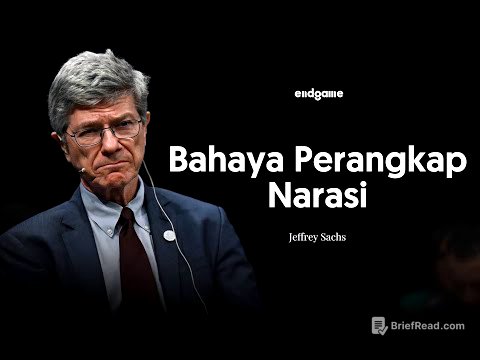TLDR;
The video discusses strategies to overcome procrastination and consistently take action by understanding and tricking the brain's natural resistance to hard work. It identifies two main sources of resistance: negative emotions and ego protection. The video provides practical tips to manage these resistances, such as breaking tasks into smaller steps, batching difficult work with enjoyable activities, taking the pressure off the ego by focusing on fun and learning, and changing the narrative to align actions with one's identity. The ultimate goal is to cultivate consistency, which leads to progress, motivation, and eventually, enjoyment of challenging tasks.
- Identify and address the sources of resistance: negative emotions and ego protection.
- Use strategies like breaking tasks into smaller steps and batching to manage negative emotions.
- Focus on fun and learning to reduce ego-related resistance.
- Align actions with identity through language to reinforce desired behaviors.
Introduction [0:00]
The speaker introduces the topic of overcoming procrastination and consistently taking action, despite the difficulty. He explains that his ability to take action consistently is not about willpower, but about tricking the brain into doing difficult things. The video will explore how the mind works and how to use that knowledge to our advantage.
Understanding the Brain's Resistance [0:19]
The speaker explains that hard work is met with two types of resistance: negative emotions and ego protection. Negative emotions arise when tasks feel stressful or boring, causing the "inner child" to procrastinate. Ego protection occurs because the mind tries to protect our self-image; doing something that risks failure is avoided to preserve the ego. Trying to fight against these natural responses doesn't work, but identifying the source of resistance allows us to change our approach.
Managing Negative Emotions [1:37]
The speaker details strategies for managing negative emotions associated with difficult tasks. The first tip is to minimize the perceived size of the task by committing to do it for only a short time, like doing one practice problem or one set of bench press. James Clear calls this the two-minute rule. Another trick is to simply start getting ready for the task, such as putting on workout clothes or opening a textbook, which can create enough momentum to follow through. The next strategy is to batch difficult work with enjoyable activities or rewards, incentivizing the completion of the hard task.
Addressing Ego-Related Resistance [4:10]
The speaker transitions to addressing ego-related resistance, explaining that our ego is formed from past experiences and shapes our reality. Drawing from Maxwell Maltz's book "Psycho-Cybernetics," he notes that our actions align with our self-image. To overcome ego resistance, one strategy is to take the pressure off by focusing on having fun and treating the task like a game. Another approach is to change the narrative we have about ourselves, using language to align the actions of the hard thing with our identity.
Changing Your Self-Narrative [6:08]
The speaker elaborates on changing the narrative to align actions with identity. For example, instead of saying "I need to work out," which implies not being in shape, say "I am a person who works out." This aligns the action with the self-image, making it more likely to follow through. The key is to align identity with the actions of the person we want to become, focusing on progress and actions rather than the end result.
Cultivating Consistency and Motivation [7:37]
The speaker concludes by emphasizing that tricking the brain is not a permanent solution but a way to initiate action. Once consistency is cultivated, it creates a snowball effect, leading to progress and motivation. Consistent action leads to progress, which in turn leads to motivation. Eventually, we start to enjoy the hard things, such as the stress of lifting heavy weights or the cognitive effort of studying, which becomes the ultimate goal.









